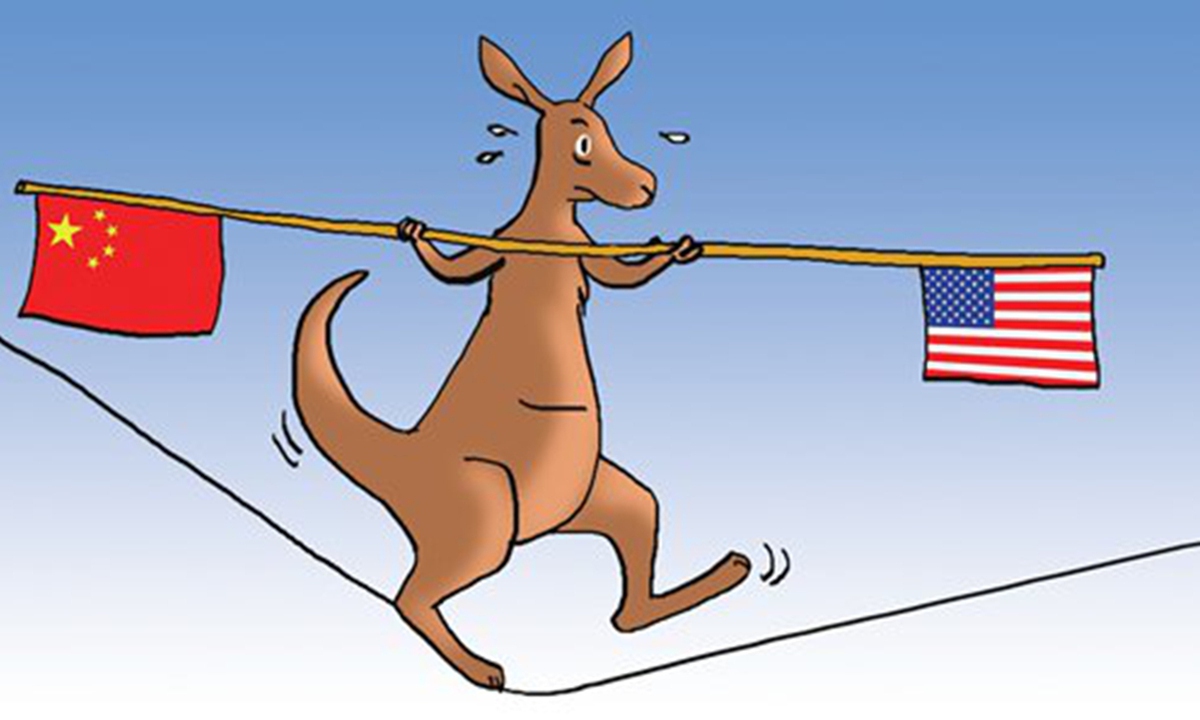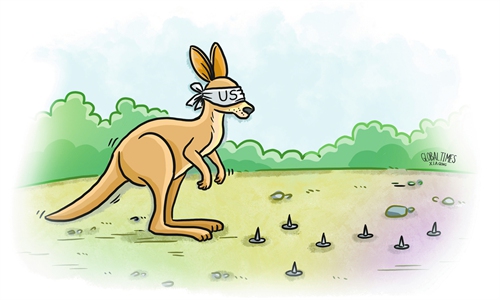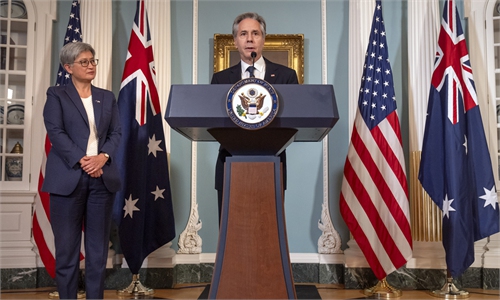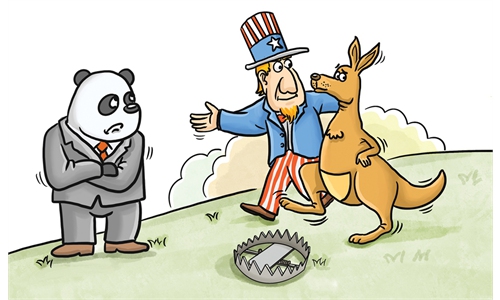
Illustration: Liu Rui/GT
The Australia-US Ministerial Consultations (AUSMIN) 2024 was held on August 6 local time in Annapolis, Maryland. This annual bilateral mechanism of dialogue between the heads of foreign affairs and defence of the two countries was held against the background of two general elections, the imminent US presidential election, and the Australian federal parliament election, to take place sometime within 2025. There is, therefore, an indecisive span of time between this year's AUSMIN talks and the wrap-up of "partisan fighting" at the completion of the two elections, leaving a yawning gap of uncertainties for policy-makers in both countries.
The vicissitudes of Western politics often bring about erratic and volatile changes to domestic and foreign policies, for example this year's AUSMIN was one of little substance, with a joint statement replete with cold war platitudes and hollow rhetoric.
Another context is the continuation and even intensification of regional conflicts. Rather than supporting and promoting peace, Washington's noxious efforts to ideologize international relations and stoke up regional conflagrations have severely sabotaged the stability in many parts of the world. The continual failure of US diplomacy has caused the country to lose confidence in itself as the self-proclaimed keeper of peace and order among nations and organizations.
When the US started to implement and advance its "Indo-Pacific Strategy," which is purported to contain, deter and derail China's development, Washington became aware of the deficiency of its national capability to act as a globally and regionally dominant hegemony. One principal tactic it has employed has been to enlist its allies and partners to join the anti-China camp.
Australia has been assigned a weighty role on Washington's bandwagon. A myth has been created and built up that Australia cannot survive without the indispensable US' "security guarantee." Canberra has been expected to dedicate Australia's resources and foreign relations exclusively to its alliance with the US, at the expense of its own long-term national interest and national security.
China and Australia have enjoyed a longstanding friendly and fruitful relationship, which in 2014, was elevated to a comprehensive strategic partnership. China has been Australia's largest trading partner since 2009. The mutually beneficial relationship has contributed to the economic development, social stability and cultural diversity of both countries.
However, this conducive and constructive partnership had been irrationally disrupted by the previous two administrations of Australia with their ferocious attacks on China in coordination with the US' "Indo-Pacific Strategy." China was then branded as a major threat to Australia, and hawkish politicians in Canberra had rallied anti-China campaigns, even claiming that "drums of war" were beating for military confrontations with China, and mutual trust was spiraling downward to a historical low.
Since 2022, however, bilateral relations have been gradually salvaged with proactive efforts from both sides to steadily reverse the freefall. The recent successful visit to Australia by the Chinese Premier Li Qiang is a testament to the general stabilization of the China-Australia relationship, which has proceeded to recover and improve with new momentum. Two-way trade between the two countries increased 9.2 percent in 2023, totaling A$326.9 billion. A recent Australia China Business Council (ACBC) report indicated the enormously positive economic impact of trade with China on Australian households. The bigger the share of Chinese imports in Australia's total imports, the report concluded, the greater the reduction in the cost of living in Australia.
The rebound and recalibration of the bilateral relations between China and Australia are a hard-won outcome which should be cherished. This progress should not be wasted by giving in to pressures from the US. As a mature and independent middle-power in the Asia-Pacific, Australia needs to look after and foster its own national interests and strategic targets, and not march to the beat of Washington's drum.
As Australia's Prime Minister Anthony Albanese said at the 7th China-Australia CEO Roundtable, which he co-hosted with Premier Li Qiang in June, "Australia stands ready to work with China to actively look into the future, advance common interests, meet common challenges, achieve mutual benefit and win-win results, and bring benefits to the two peoples." These are the words of a judicious leader with political wisdom and strategic prudence, which are essential to the sanguine development of our bilateral relations, as well as the stability and prosperity of the Asia-Pacific region.
The author is director of the Australian Studies Centre at East China Normal University. opinion@globaltimes.com.cn



